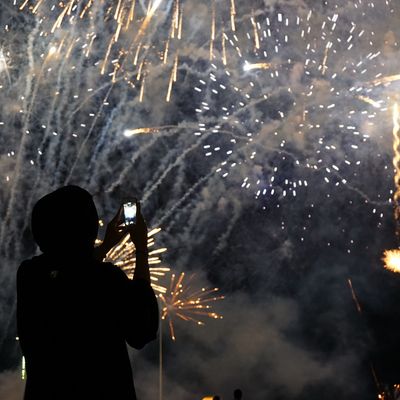
An extensive new study led by scientists from the National Oceanic and Atmospheric Administration concludes that watching fireworks shows, under certain weather conditions, can pose significant health risks to audiences. The research, recently published in the journal Atmospheric Environment, flags the danger posed by fine particulate matter released into the air by exploding fireworks. Anyone perfectly downwind who inhales that extra dust, smoke, and soot could suffer anything from simple coughing spells to asthma attacks, stroke, or cardiac arrest.
The scientists looked at air-quality measurements from 315 sites over 15 years, and of those sites, 10 showed levels of air pollutants following fireworks displays that could be toxic to humans. One site even saw airborne particulate matter increase by 340 percent. The good news? The spike only happens on the evening of July 4, and air-pollutant levels were typically back to normal by the next day.
Nonetheless, after taking into account the preexisting risks of firework-started blazes, firework-related injuries, overeating and over-drinking, subway-crowd aggravation, picnic-basket tripping, and lousy national-anthem renditions, July 4 is now officially the most dangerous day of the year to be an American.






























